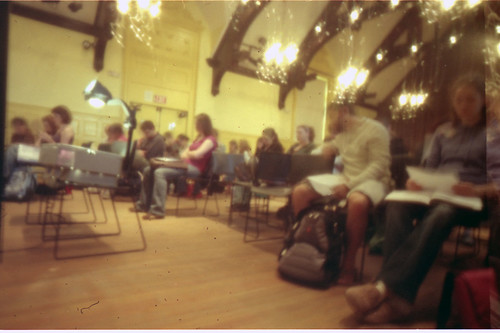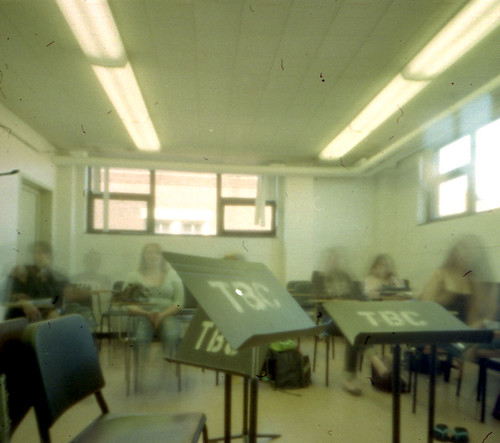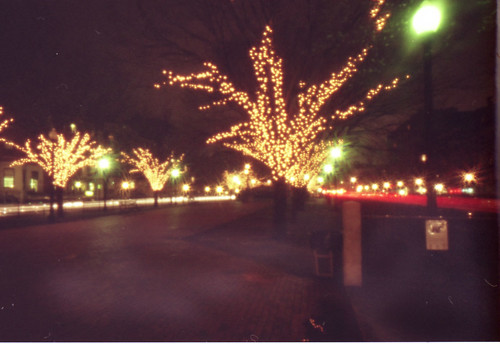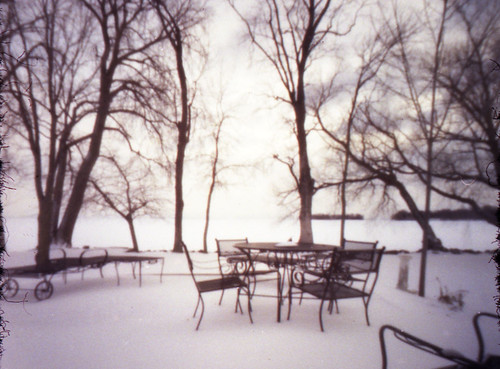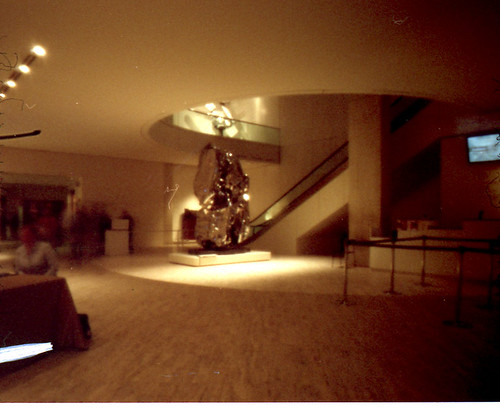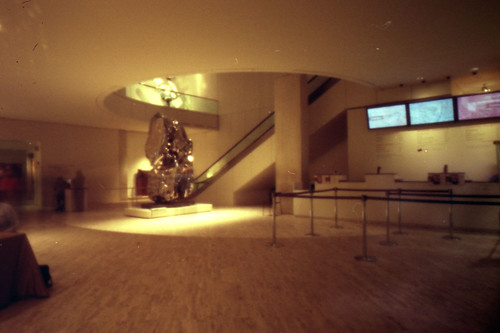Heaven Underwater
I know two Pauls, and they both compose. Neither of them had works on the composition concert I recently attended, but that's because one of the Pauls, Paul Karner, had his senior recital/lecture in the near future. I made it back up to Lawrence for it, realizing that even though I'd been in the guitar studio with him and worked with him at WLFM for years I hadn't heard any of his compositions. I had heard his emo band however!
Paul's lecture was on the concept of venue and performance, revolving around the curious case of the Pabst Theatre in Milwaukee. The Pabst has been in continuous operation since 1895 and maintained the original decor but now specializes mainly in this "rock and roll" you may have heard about. The first six rows of seats are removable to allow for a proper pit and as you can imagine the Blue Ribbon flows like wine there. It's a fantastic case study of a number of different bands performing in a venue with the poise of a classical concert hall, despite very little concert music appearing there.* Those in Boston might notice this to be the inverse of BMOP, where the same ensemble can be found in staggering disparate venues.
Paul compared his experiences at the Pabst seeing Cursive, darlings of ANABlog, and Devendra Banhart. Neither, he said, seemed particularly comfortable at the Pabst. Cursive seemed to be filling too large a space, whereas Banhart and his orchestra, having just come off of an affirming stint at the Lincoln Center, seemed cramped and condescending to the Midwest audience. Alas, his lecture touched on too many points to summarize here. Hopefully, as I start to mull lecture ideas for next year I'll be able to take his ideas and run with them.
The whole proceedings took place not at Lawrence's recital hall but in one of the art building's studios, making the entire recital an exercise in venue. The atmosphere did seem much more relaxed, but the players were also dressed down so the controls were thrown off. (I'm also not sure whether an audience of musicians would succumb to the suffocating aspects of the concert hall.) The three composed pieces preceeding the lecture revealed a complicated and intriguing compositional voice. Paul is definitely a man with one foot in his indie rock roots and one in the bracingly avant-garde comp studio at Lawrence. All of the works used long lyrical melodies either complimented or contradicted by repeated molecular phrases or pointillistic bursts of extended technique.
After his lecture, Paul played two acoustic folk songs he'd written. (Hey, fuck you! He composed them and it's his composition recital!) I must say that I felt a pang of jealousy that he got away with it, seeing as I was in a rock band at the time of both of my recitals and my grad school auditions. Here I think the idea of venue came back into play, this ending may have seemed forced in Harper Hall. But in that art studio, it was the most logical extension of a portrait of a composer.
* This may be slightly skewed by the fact that we are entering the summer months, but the only vaguely "classical" show on the calendar is a performance of the Nutcracker by the Moscow Ballet, which I feel were just in Boston. This sentence also makes me realize the inherent stupidity of the term "concert music", but it's still better than "classical".
